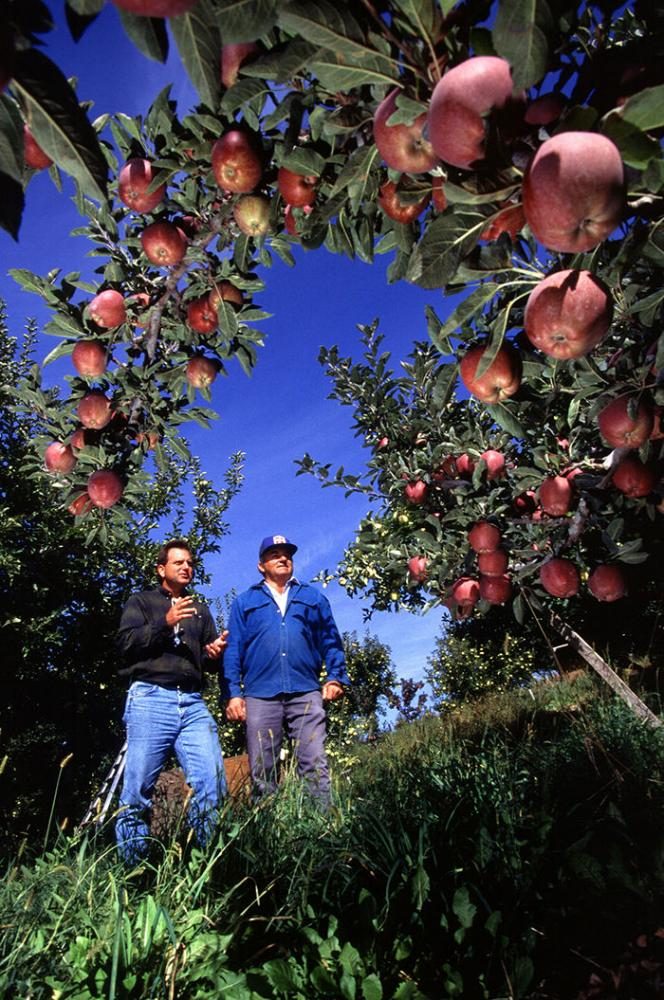Tariff could hurt state apple growers
WSU professors say a tariff on Mexican imports, which Trump is considering, could harm the Washington apple industry.
February 9, 2017
The proposed tariff on Mexican imports to the U.S. could negatively affect the Washington apple industry.
On Jan. 26, President Donald Trump’s press secretary, Sean Spicer said Trump was considering a 20 percent tariff as a way to pay for the border wall he promised to have built between the U.S. and Mexico.
Andrew Cassey, a WSU School of Economic Sciences associate professor, said it is very difficult to predict whether this tariff will actually be put in place. If the tariff is enacted, he said, Mexico will likely retaliate by taxing U.S. imports.
Todd Fryhover, President of the Washington Apple Commission, said Mexico is a critical market for the industry, particularly this year.
“We have a need to participate in Mexico for a couple reasons,” Fryhover said. “Number one is it’s our number one export market. Number two, we control over 50 percent of the apples that are in that marketplace, and number three, we need them this year with a larger crop.”
The immediate effects of Mexico taxing Washington apples would impact mainly Mexican consumers and Washington growers, Fryhover said.
Mexican consumers would be faced with higher retail prices, which could have a net effect, driving the demand down and decreasing prices for growers, he said.
“Washington growers, I would guess, would take the majority of the hit,” Fryhover said.
Distinguished Professor of Agricultural and Resource Economics in the WSU School of Economics, Tom Marsh, said a trade war with Mexico could have a negative impact on Washington apple industry employees. He said with the additional apples in the domestic market created from a reduction in exports, the U.S. would see a downward pressure on prices.
“If you’re getting less for your product in the output market, then that is going to kind of drive down, over time, the amount you’re willing to spend on labor and other input,” Marsh said.
Fryhover said if the proposed tariff went into effect, it would not be the first time the actions of the U.S. government negatively affected the Washington apple industry. An incident happened a few years ago that caused Mexico to tax apples coming from Washington along with many other U.S. imports, he said.
There was an agreement through the North American Free Trade Agreement (NAFTA) allowing trucks from Mexico to cross the border into the U.S. to make deliveries, but in 2009, the U.S. government essentially went back on that agreement, Fryhover said. Mexico retaliated by taxing U.S. imports, including apples from Washington, he said.
“We didn’t have anything to do with the trucking issue, yet we had a tariff put on our product because of the U.S. government’s lack of executing a pre-agreed trucking issue.” Fryhover said.
Marsh said the proposed 20 percent tariff on Mexican imports would likely create more inefficiencies.
“I think any time you start intervening in a market that is driven by free market interactions by individual firms and consumers and governments try to impose tariffs or other regulations, it is typically bad news,” Marsh said.



















